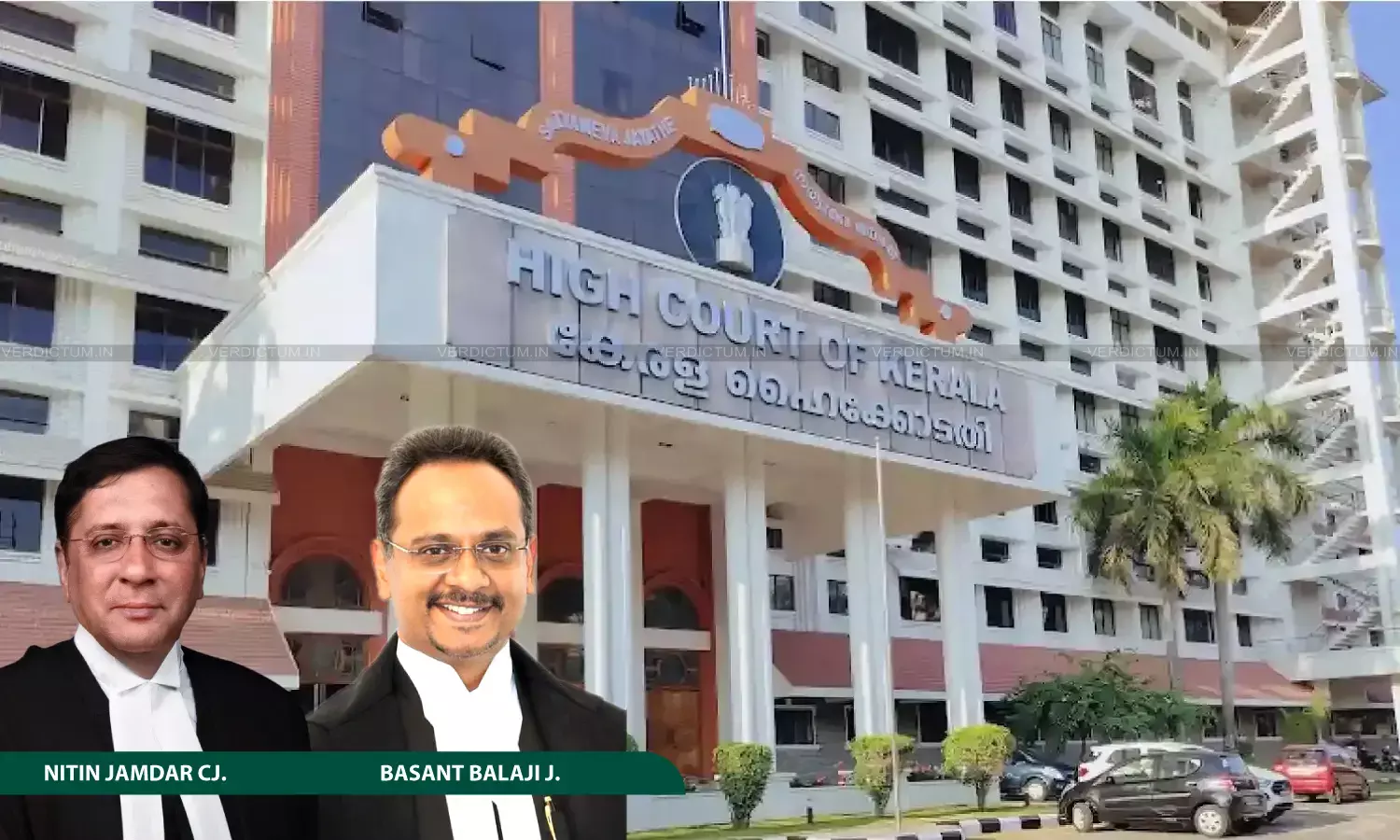WhatsApp Notice Not Valid Under Section 169 Of CGST Act Post-Pandemic: Kerala High Court
The appellant's vehicle was confiscated based on WhatsApp notices.

Chief Justice Nitin Jamdar, Justice Basant Balaji, Kerala High Court
The Kerala High Court set aside the confiscation of a transport vehicle by the State GST authorities, citing improper service of notice as the basis for its decision. The Court ruled that WhatsApp communication does not constitute a valid mode of service under Section 169 of the CGST Act.
The appeal arose from a challenge to an order passed by a single judge, which had upheld the seizure and subsequent confiscation of the appellant’s vehicle for allegedly transporting sullage without appropriate documentation.
A Division Bench of Chief Justice Nitin Jamdar and Justice Basant Balaji held, “The notice stated to have been sent to the Petitioner/owner through WhatsApp is not a mode of service contemplated under Section 169 of the Act of 2017. While such a practice was permitted during the COVID-19 pandemic, it no longer constitutes a valid mode of issuing notice under the provisions of the Act.”
Advocate Faizel K. appeared for the petitioner, while Senior Government Pleader Thushara James appeared for the respondents.
Background
The vehicle in question was detained on November 25, 2024, and a confiscation order under Section 130 of the CGST Act was passed on December 21, 2024. The appellant, the registered owner of the truck, contended that he had no knowledge of any tax evasion by the consignor and that his role was limited to providing transportation services. Crucially, he asserted that he was never served a valid notice under Section 130 and was not given an opportunity to be heard, as required under law.
In defence, the State GST authorities submitted that they had communicated with the truck driver, recorded his statement, and had served notices to the appellant multiple times via WhatsApp. They further contended that the confiscation proceedings had concluded and, therefore, could not be reopened.
Findings
The High Court found that no valid service of notice was made in accordance with the procedures prescribed under Section 169 of the CGST Act, which enumerates the permissible modes of service of notice. The Court held that WhatsApp is not a recognized mode under the statute and that while such practices may have been temporarily permitted during the COVID-19 pandemic, they do not satisfy the legal requirements post-pandemic.
The Bench emphasized that serving a valid notice is a precondition for exercising the powers of confiscation under Section 130, and any failure to do so vitiates the entire proceedings. The Court concluded that the appellant was denied a fair opportunity to present his case, rendering the confiscation order legally unsustainable.
In light of these findings, the Division Bench quashed both the single-judge order dated April 11, 2025, and the confiscation order dated December 21, 2024. The matter was remanded to the competent authority for fresh adjudication, with directions to serve proper notice upon the petitioner and grant him a reasonable opportunity of hearing, to be completed within three weeks from the date of the petitioner’s appearance.
Cause Title: Mathai M.V. v. The Senior Enforcement Officer & Anr., [2025:KER:45283]


